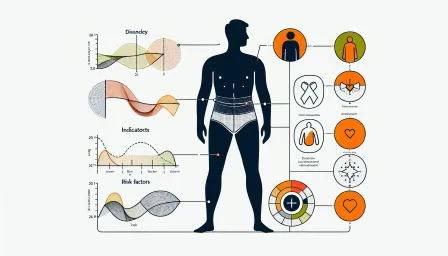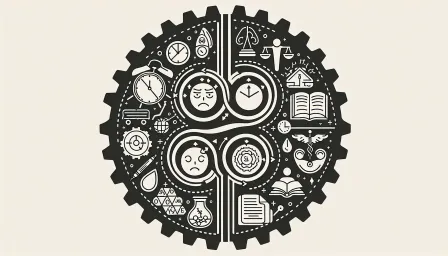Intermittent Fasting Side Effects: What You Need to Know Before Starting

Learn about intermittent fasting side effects, how they impact your health, and tips to mitigate them. Make an informed decision before starting your fasting journey.
Intermittent fasting has gained widespread popularity as an effective weight loss and health optimization method. Yet, like any dietary regimen, it has its own set of potential side effects. Understanding these side effects is crucial before beginning an intermittent fasting routine. This article delves into the scientific background of intermittent fasting side effects, helping you make an informed decision.
Understanding Intermittent Fasting
Intermittent fasting involves cycling between periods of eating and fasting. Common methods include the 16/8 method (16 hours of fasting and an 8-hour eating window), the 5:2 method (eating normally for five days and restricting calories for two days), and the eat-stop-eat method (24-hour fasts once or twice a week). This eating pattern can lead to several health benefits, such as weight loss, improved metabolic health, and enhanced brain function. However, it’s pivotal to be aware of the possible side effects.
Short-Term Side Effects
Hunger and Cravings
The most immediate and noticeable side effect of intermittent fasting is hunger. Your body, accustomed to regular meals, may respond with intense hunger pangs initially. Over time, these sensations may subside as your body adjusts to the new eating pattern.
Low Energy and Fatigue
In the beginning, you might experience low energy levels and fatigue, especially if you engage in physically demanding activities. This is because your body is adapting to burning fat for energy instead of glucose from frequent meals.
Headaches
Headaches are a common complaint among those new to intermittent fasting. These can be attributed to dehydration, caffeine withdrawal, or simply the change in your routine.
Mood Swings
Feeling irritable can be another short-term side effect. When you're hungry, your patience and overall mood can suffer. It helps to stay well-hydrated and get adequate sleep to mitigate these effects.
Long-Term Side Effects
Nutrient Deficiency
Intermittent fasting might lead to nutrient deficiencies if your eating windows don't allow you to consume a balanced diet. Ensuring that your meals are nutrient-dense during your eating windows is crucial to preventing deficiencies.
Digestive Issues
Digestive issues, such as constipation or bloating, may occur, especially if you consume large meals during your eating periods. Eating high-fiber foods and staying hydrated can help alleviate these problems.
Disordered Eating
For some individuals, intermittent fasting may act as a trigger for disordered eating patterns. This is particularly true for those with a history of eating disorders. It is essential to consult a healthcare provider if you have such concerns.
Intermittent Fasting for Specific Populations
People with Medical Conditions
Individuals with medical conditions, such as diabetes or hypertension, should consult their healthcare provider before starting intermittent fasting. This diet could interact with medications and exacerbate certain health issues.
Pregnant and Breastfeeding Women
Pregnant and breastfeeding women should avoid intermittent fasting. Adequate nutrition is crucial during these periods, and fasting may jeopardize nutritional intake for both mother and baby.
Athletes
Athletes need a consistent supply of energy for peak performance. Though some have successfully integrated intermittent fasting into their routines, professional guidance can help balance training demands with fasting periods.
Mitigating Side Effects
Stay Hydrated
One of the simplest ways to mitigate side effects is to drink plenty of water. Hydration can help reduce hunger, fatigue, and headaches.
Balanced Nutrition
During your eating windows, focus on balanced meals rich in nutrients. Prioritize whole foods such as fruits, vegetables, lean proteins, and whole grains to ensure you're meeting your nutritional needs.
Gradual Transition
Instead of diving into a strict intermittent fasting schedule, consider easing into it. Gradually increase the fasting period to allow your body time to adapt.
Listen to Your Body
Pay attention to how you feel. If you experience severe discomfort or problematic symptoms, intermittent fasting might not be suitable for you. Consult a healthcare provider for personalized advice.
Conclusion
Intermittent fasting offers numerous benefits, from weight loss to improved metabolic health. However, it's essential to be aware of the potential side effects and take appropriate measures to mitigate them. By staying hydrated, eating nutrient-dense foods, and listening to your body, you can minimize the risks and maximize the benefits of intermittent fasting. Always consult with a healthcare provider before making significant changes to your eating habits, especially if you have underlying health conditions or specific dietary needs.
Intermittent fasting can be a valuable tool in your health journey, but a cautious and informed approach ensures you navigate its challenges effectively.



























